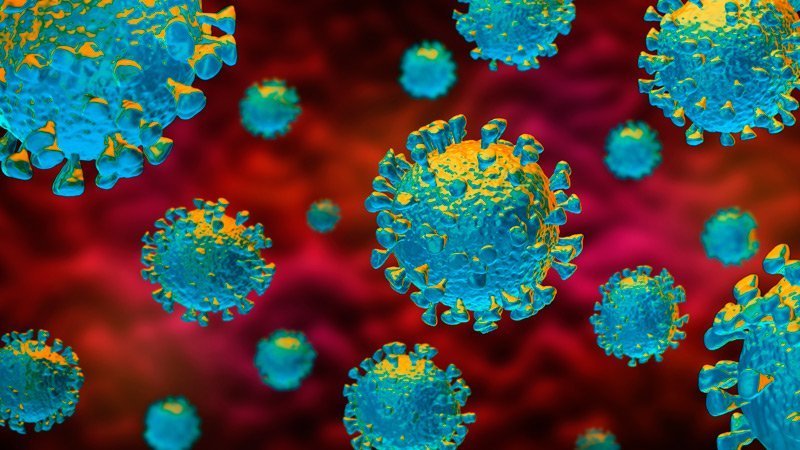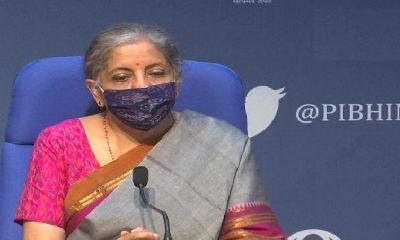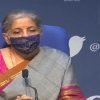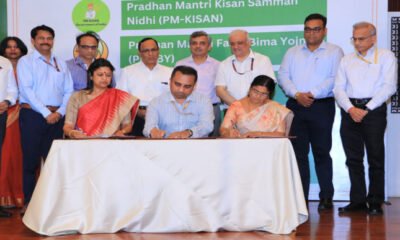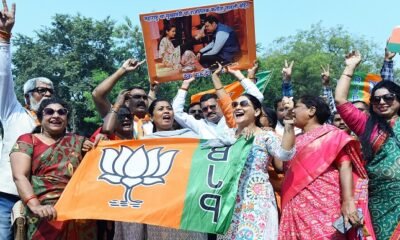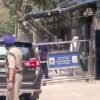National
How Tamil Nadu is battling COVID-19
Chetna Gupta :
COVID-19 has been declared as a global pandemic i.e. all the countries around the world are suffering from this disease with few of them such as Italy and US reporting the worst conditions. Talking particularly about India, apart from the health crisis, it has also led to further economic crisis when it was already facing an economic slowdown. There has been complete lockdown in the country as a step to combat the spread of the virus which has also suspended the economic activity. Considering the hardships faced by the people during lockdown and to mitigate the impact on the Indian economy, our government has introduced certain fiscal, welfare and monetary policies along with a relief package of Rs1.70 lakh crore under Pradhan Mantri Gareeb Kalyan Yojana. It is on the way to announce an economy package as well while receiving financial support from the domestic companies, foreign countries and International organisations. The health sector of our country and the ICMR (Indian Council for Medical Research) is working hard in meeting the testing and the treatment requirements. But it’s also the public who needs to cooperate by staying homebound. Though India has reported only a few number of cases in comparison to the rest of the world, the numbers can’t be taken for granted because the situation is changing rapidly and nothing can be predicted. Considering this, almost all the states in India have started taking immediate steps to combat the spread of this virus.
Tamil Nadu reported its first case on March 18 of a 45 year old engineer who had travelled to Oman. Then onwards, there has been a rapid increase in the number of cases. Until 29th of March, Tamil Nadu has reported 42 positive cases including 2 patients recovered and 1 dead.
The state’s Health Minister C Vijayabaskar during his interview on 22nd March told us how intensely Tamil Nadu is working to prevent COVID-19. They have 8 testing centres with adequate testing kits which are available for free by the centre. There are 1,690 ventilators for ready use and 1,000 more units are to be added. They have 40 lakh three-ply masks, 2 lakh N-95 masks and 1,000 units of personal protective equipment. They have appointed 500 doctors, 1,000 nurses and 1,500 lab technicians. To face any emergency crisis, the Health Ministry is planning to have reserve strength by granting leave on a rotational basis to a sizeable number of medical and Para-medical staff. A piece of robotic equipment designed by the Hindustan University was trialled at RGGH (The Rajiv Gandhi Governmental General hospital) which worked well and after some customisation will soon start serving patients in isolation wards by supplying food, medicine, etc. RGGH had newly built a seven storied Tower- III which will be turned into an isolation facility. Also, the private hospitals have agreed to provide 100 beds each for the isolation and treatment of the patients whose expenses will be borne by the government itself. A little over 1500 beds have been kept ready in various government and private hospitals. They are treating their patients with Chloroquine and Azithromycin drugs which have high demand across the world and are yielding good results. These, along with other anti-viral drugs are sufficient to treat 1.5 lakh patients. Special screening of the people at airport is being done and their hands are stamped with ‘Home Quarantined’ mark, the figures of which have reached above 43,000. The geo fence technique is used to make sure they stay indoors. Vijayabaskar warned strict measures against individuals returning from abroad who deny self-quarantine measures. More than 4,250 people are being provided online treatment through mobile apps.
The state announced a complete lockdown from 24th March onwards as the best solution to control the spread by ensuring, at the same time, a continuous supply of essential goods and services to the people. On that day itself, a countrywide lockdown was declared by the government. Due to lockdown, Tamil Nadu’s busiest places became deserted and people out on the streets were treated with lathi charges and vehicle seizers. As on 25th March, TN screened a total of 2, 09,276 passengers and 15,492 people were under follow up. More than 890 samples were tested and 211 people are admitted in various hospitals. The state’s chief minister K. Palaniswami announced several welfare schemes to benefit the common man. The TN government also asked to promote all students till class 9. From 29th March, it declared that all medical shops and restaurants will remain open throughout the day. Provisional stores, fruits and vegetable shops and petrol/diesel pumps shall function between 6 am and 2:30 pm. App based food delivery operators Swiggy and Zomato could function from 7 am to 9:30 am for breakfast, 12 noon to 2:30 pm for lunch and between 6 pm and 9 pm keeping in mind the elderly and the needy people. The delivery people had to get their ID cards from the employer and their health conditions should be checked daily. Special designed petrol/diesel pumps would function for the 108 ambulances and government vehicles. Distribution of cooked food to the destitute was violated. Instead, dry rations were to be supplied at the help desks of Chennai Corporation Commissioner and all district collectors. Supplies from other states must be unloaded in wholesale markets and disinfected places between 6 am to 6 pm. All these decisions were taken to avoid rush at the shops throughout the day and encourage social distancing. Also, with specific timings, people’s movement could be volunteered properly. The state also announced a containment plan to initiate on 29th March in its various districts. Under the plan, an 8 km zone will be demarcated in the radius of the locality where positive people lived before shifting to the hospitals. 5 km will be the containment zone and the remaining 3 km will be the buffer zone. The health workers have been allotted 50 houses each covering all the houses of the locality. They would check door-to-door for the people with symptoms of cold and fever and provide them masks. The old-age would be kept under self-isolation. So, we see that Tamil Nadu has been prompt in taking actions and so should be the other states.
Each part of the country, in fact, each part of the world, is working hard to control this epidemic. It’s time for the counties to forget its boundaries and make a multilateral approach towards this global challenge. The IMF (International Monetary Fund) has already declared that the world has entered a recession as bad and worse as the Global Financial Crisis in 2008. Developed economies like US and Italy are unable to control the spread, what about India? People should realise the necessity of following what the government and the doctors are recommending. Complete precautions should be taken and physical distance should be maintained. Not only the Central government but all the State governments should join hands and helps its people survive this epidemic. With number of cases rapidly increasing, India has just reached the second stage now and according to the sources and experts, situation will worsen in 2 months or so. We should be prepared.
Sources:
The Hindu, Live Mint, Deccan Herald & The Economic Times.
Chart (Self-made with information verified through the sources)


